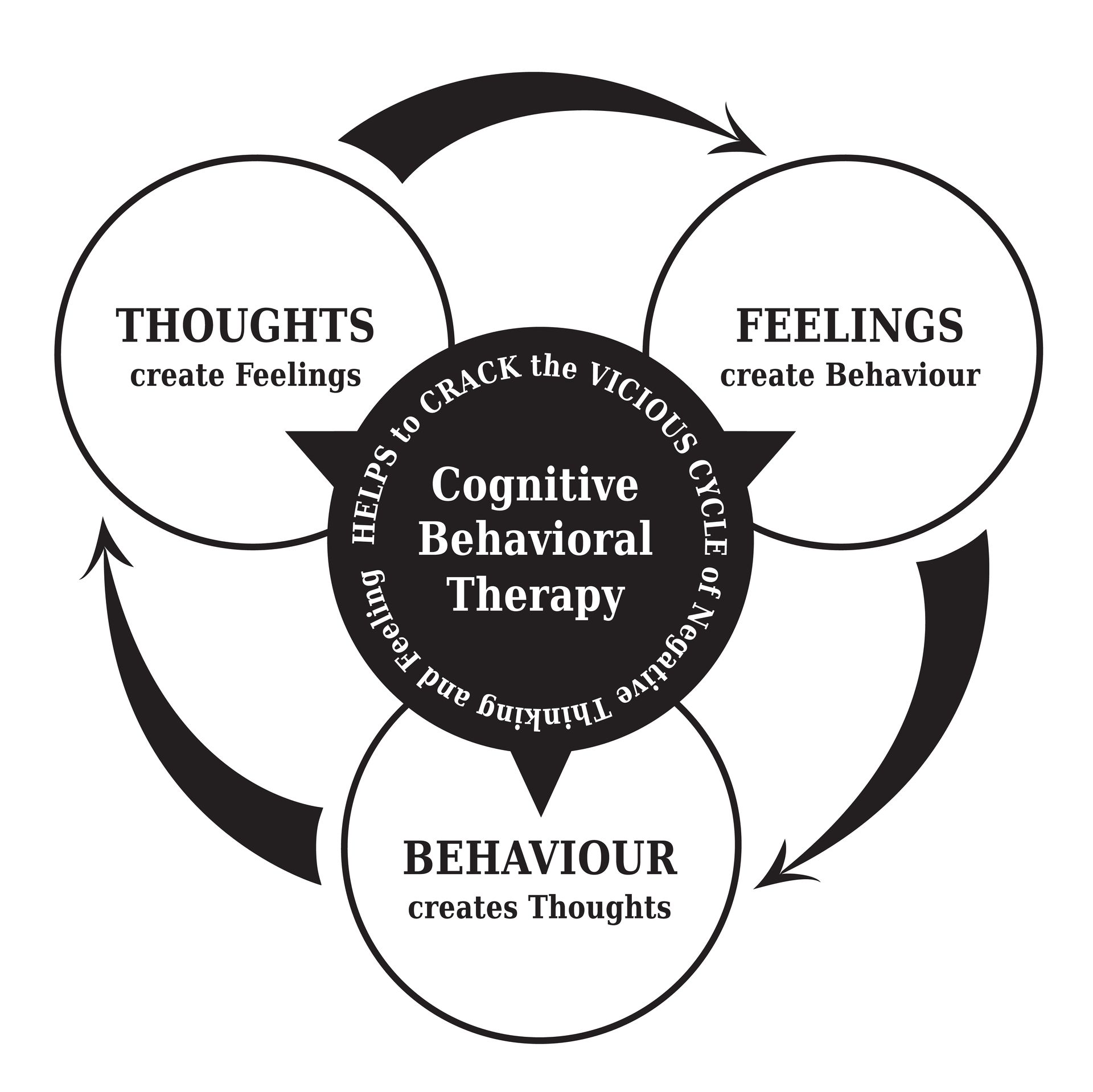Cognitive Behavioral Therapy (CBT)
CBT, or Cognitive Behavioral Therapy, is a type of psychotherapy that helps you identify and change unhelpful thoughts, beliefs, and behaviors. It's evidence-based and commonly used to treat a wide range of mental health conditions, including depression, anxiety, stress, phobias, PTSD, and more.
How CBT Works:
CBT is based on the idea that your thoughts, feelings, and behaviors are interconnected—and that changing negative thought patterns can lead to changes in how you feel and behave.
For example:
Situation: You make a mistake at work.
Thought: “I’m such a failure.”
Feeling: Hopeless, anxious.
Behavior: Avoid work tasks or procrastinate.
In CBT, you'd learn to challenge and reframe that thought:
New thought: “Everyone makes mistakes. I can learn from this.”
New feeling: Less anxious, more hopeful.
New behavior: Address the mistake constructively.
How CBT Can Help You:
- Clarify thinking: You become more aware of negative or distorted thoughts.
- Change behaviors: You learn healthier coping skills and strategies.
- Improve emotional regulation: You feel more in control of your responses.
- Break cycles: CBT can help stop patterns of avoidance, rumination, or self-sabotage.
Typical CBT Techniques:
- Thought records or journaling
- Behavioral experiments
- Exposure therapy (for anxiety and phobias)
- Activity scheduling
- Relaxation training and mindfulness
CBT is typically short-term (8–20 sessions), structured, and goal-oriented. You often get homework to practice skills between sessions. Talk to your therapist if you are interested in CBT.


